
The Busy Holiday Season: Making Time for Your Pets
The holidays are full of sparkle, laughter, travel, and to-do lists a mile long. As joyful as this season can be, it often means busier schedules and less time for everyday routines. In the middle of the holiday rush, it’s...

7 Health Tips Every Senior Pet Parent Should Know
If you’re lucky enough to have a senior pet, you know just how special that bond becomes over time. From cozy afternoons on the couch to the look in their eyes that says, “I’ve known you forever,” there’s a deep...

Quiet Heroes Behind Healthy Pets: Veterinary Technicians!
Have you ever walked into a veterinary clinic, had your pet whisked gently away, and wondered who all those smiling, scrub-wearing professionals are? You might recognize your pet’s veterinarian, but chances are there’s another key person working hard behind the...

Is Your Pet Experiencing Pain? Here are Some Signs You Might Be Missing
Has your dog seemed a little more reserved lately, or is your cat less interested in playing with their favorite toys? It can be easy to attribute these changes to aging or mood, but pets are experts at...

Taking Care of Your Feline: How Regular Veterinary Visits Can Improve Your Cat’s Life
Your cat may not be able to speak, but they’re always telling you something—with their behavior, energy levels, and habits. The trouble is, cats are naturally excellent at hiding signs of illness. So how can you tell if something’s wrong?
...
Curiosity Sparks Danger: How Pets Start Fires and What You Can Do To Prevent Them
Did you know that pets accidentally start nearly 1,000 house fires every year in the United States? It’s a scary thought, but it doesn’t have to be a reality in your home. Our furry companions are naturally curious and love...

Is It a Hot Spot?
If your dog won’t stop licking, chewing, or scratching one spot, it’s natural to wonder: “Is something wrong with my pet?” While occasional itching can be common, constant attention to a single area can signal a more serious...

Road Trip Ready: How to Travel Safely with Your Pet This Summer
Sunshine, open windows, and the promise of new adventures—summer road trips are hard to resist. And if you’re like many pet parents, there’s no way you’re leaving your four-legged friend behind. Whether you’re headed to a cabin up...

Debunking Myths About Heartworm: What Every Pet Owner Should Know
Think heartworm is just a summertime issue? Or that your indoor cat is safe from it? You’re not alone—many pet owners have heard (and believed) myths about heartworm disease. But the truth is, this serious and potentially deadly...

Pet Poison Prevention: Common Household Dangers & How to Keep Your Pet Safe
Pets are naturally curious, which can sometimes get them into trouble. Many everyday items that seem harmless to humans can be extremely dangerous to our furry companions. Knowing what’s poisonous to pets and how to prevent accidental ingestion can help...

Show Your Pet Some Love With Proper Dental Care
February is here, and love is in the air! But while you’re showering your loved ones with chocolate, flowers and cards, don’t forget the furry members of your family. This month is National Pet Dental Health Month and a perfect...

Shining a Spotlight on Our Veterinary Technicians: The Heartbeat of Our Practice
From October 13-19, 2024, we join veterinary clinics nationwide in celebrating National Veterinary Technician Week! These incredible individuals are the backbone of our clinic, working tirelessly to ensure every pet receives the care they need. If you’ve ever wondered just...

Subtle Signs of Pain in Pets
As a veterinary team, one of the most important conversations we have with pet parents is about pain. Unlike us, our pets can’t simply tell us when something hurts. They often mask their discomfort, making it difficult to recognize the...

Why Your Cat Needs to See the Vet
When was the last time your cat visited the vet? Cats are known for their independent and often aloof nature, which can sometimes lead to the misconception that they don’t require regular veterinary care. However, just like dogs, cats need...

Summer Safety Tips for Pet Owners
Summer is a time for fun, relaxation, and outdoor activities. However, while we enjoy the warm weather, we need to take extra precautions to ensure our pets stay safe and healthy. Read on for valuable tips on keeping your pets...
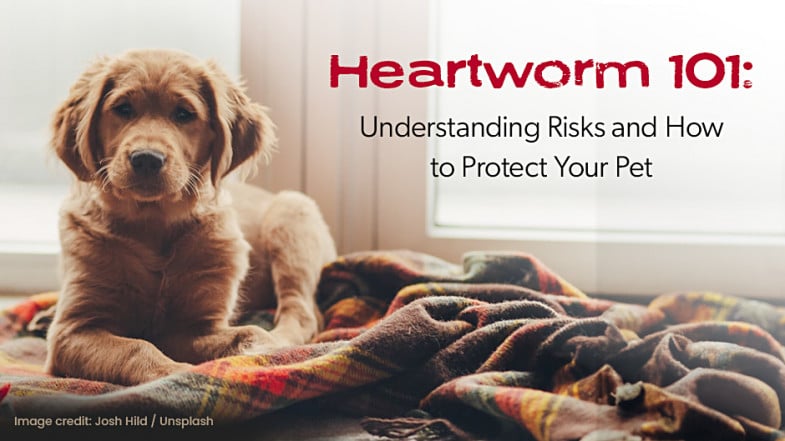
Heartworm 101: Understanding Risks and How to Protect Your Pet
Among the various health risks that pets face, heartworm disease stands out as a particularly insidious threat. This disease can have devastating effects on your pet, and yet, it is preventable. This article will delve into heartworm disease and stress...
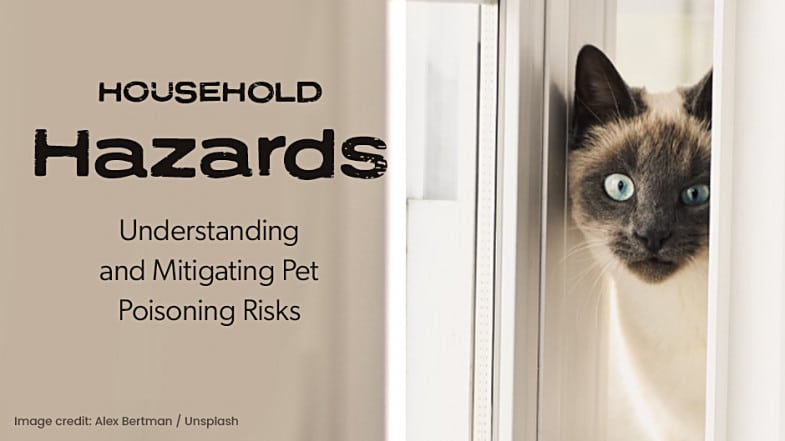
Household Hazards: Understanding and Mitigating Pet Poisoning Risks
Owning a pet offers immeasurable joy, companionship, and love. However, it also comes with the responsibility of ensuring their safety and well-being. Many common items found in our homes could pose significant poisoning risks to our furry companions. By understanding...
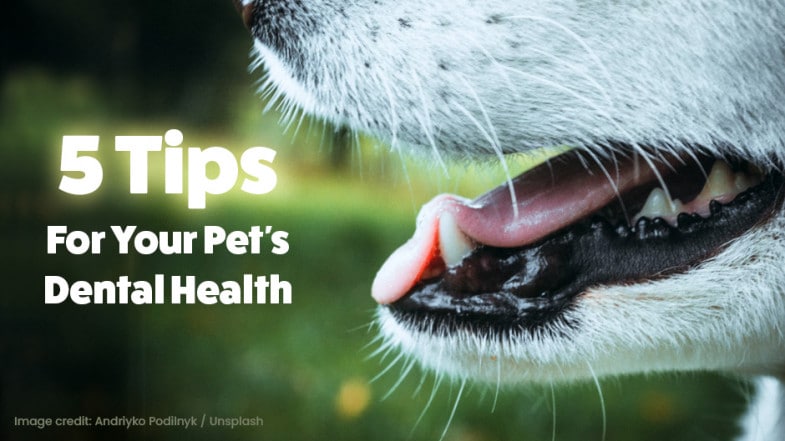
5 Tips for Your Pet’s Dental Health
We all wish for our furry friends to live happy, healthy lives by our sides. But often overlooked in pet care is a critical area that affects their overall well-being: dental health. Just like us, pets’ teeth need regular attention...

Making Spirits Bright: How to Navigate Holiday Hazards for Your Pets
The holiday season is a time of joy and celebration, but it can also bring unexpected challenges for pet owners. As a veterinary team, we’ve seen our fair share of holiday-related pet emergencies, from tinsel ingestion to Christmas tree accidents....

Feasting Safely: Foods Your Pet Should Avoid This Thanksgiving
As Thanksgiving approaches, we all prepare to indulge in festive treats and a hearty Thanksgiving meal. But as pet owners, we must remember that our furry friends should not indulge in the same way. This Thanksgiving, we have compiled a...

Spooky but Safe: How to Keep Your Pet Calm During Halloween
Halloween is one of the most awaited events for kids and adults. The streets are filled with people wearing creative costumes, decorations are everywhere you look, and sweet treats and the scent of pumpkin spice fill the air. While it...
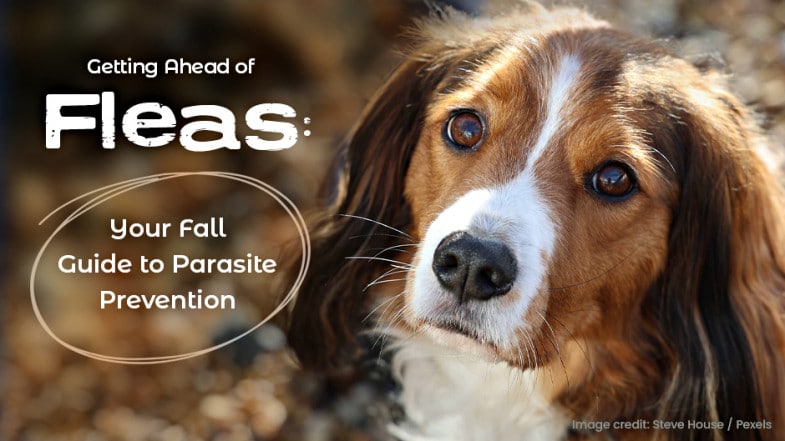
Getting Ahead of Fleas: Your Fall Guide to Parasite Prevention
As pet owners, we can attest that flea infestation can not only be annoying but also extremely dangerous to our pets. Fleas can cause severe skin irritation, anemia, and even transmit deadly diseases. As we approach the fall season, it’s...

Back to School Blues: Helping Your Pet Adjust to a Quieter House
Back to school season is an exciting time for kids, but for pets, it can be the source of anxiety and stress. After a summer filled with playtime, cuddles, and attention, the sudden decrease in activity can have a profound...

Keeping Cool: Essential Tips to Keep Your Pets Safe in the Summer Heat
As we enter into summer, the temperatures begin to rise, and it is more important than ever to keep in mind how the heat can impact your pets. Heat exhaustion and heat stroke are both potentially fatal conditions for your...
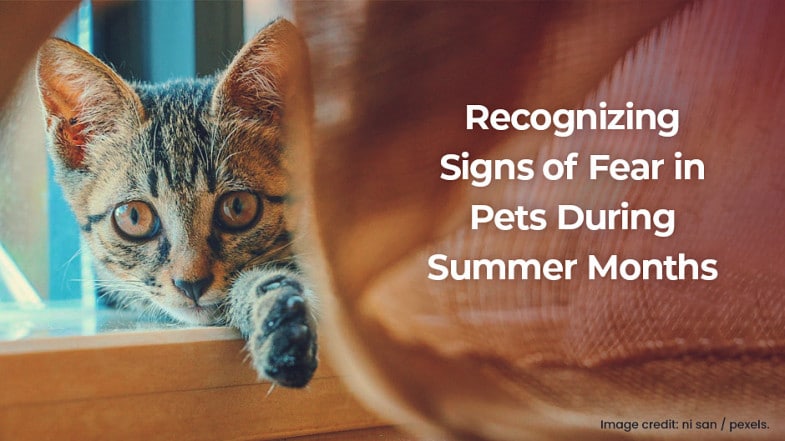
Recognizing Signs of Fear in Pets During Summer Months
As pet owners, it’s crucial to prioritize the mental and physical health of our beloved companions. One of the most common causes of stress in pets is summer thunderstorms and fireworks. During these events, pets exhibit various behaviors that indicate...

Pet Owner’s Springtime Checklist
Have you thrown yourself into your spring cleaning? If you’re like most people, you’re airing out the house, getting some plants in the ground, and enjoying the beauty of this season with your pet by your side. In fact, this...

Keeping Pets Safe and Healthy: Essential Tips for Pet Poison Prevention
According to the Pet Poison Helpline, every year, thousands of pets are affected by accidental poisoning. To raise awareness about common poisons and how we can prevent our pets from being exposed to them, Pet Poison Prevention Month is observed...
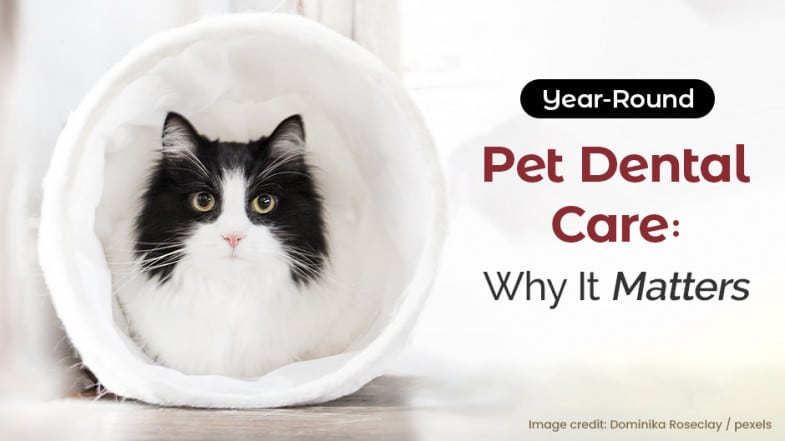
Year-Round Pet Dental Care
Why Dental Health Matters
February is Pet Dental Health Month and it’s a great time for pet owners to brush up on their pet care knowledge. Just like humans, pets need good dental healthcare. That’s why it’s important to understand...

Kick off 2023 with Tips to Keep Your Pet Healthy
As we move into the New Year, it is a perfect time for resolutions and looking at the year as a whole. Just as for ourselves, and the goals we may set, the New Year provides a moment to pause...

5 Ways to Spoil Your Pet This Holiday Season
The holidays are a time for family, friends, and fun. But for pet owners, they can also be a time to spoil their furry friends! There are so many ways to make your pet’s holiday season special. In this blog...

The Benefits of Adopting a Senior Pet
One of the most rewarding things about being a pet owner is knowing that you’ve given an animal a loving home for the rest of their days. And what could be more rewarding than giving a senior pet a “new...
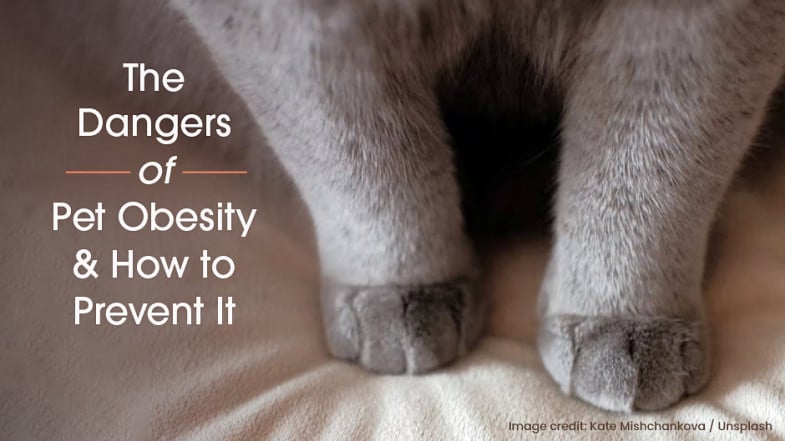
The Dangers of Pet Obesity & How to Prevent It
Just like humans, our pets can suffer from obesity. As pet owners, it’s our responsibility to make sure our animal companions stay at a healthy weight. Not only does obesity limit your pet’s mobility, but it can also lead to...

Hidden Signs of Pain: How to Recognize Discomfort in Your Pet
When our pets are sick or injured, they can’t tell us where it hurts or how they feel. However, there are subtle signs that can help you determine when your pet isn’t feeling well. Knowing how to recognize these hidden...

An Itchy Problem – What You Need to Know About Your Pet’s Skin
Is your pet constantly scratching? Pets can suffer from various skin issues that can cause extreme discomfort. Some pets may develop skin irritation as a result of allergies, while other pets may be itchy from fleas or other parasites. To...

Pet Fire Safety
Pets are a part of your family, and it’s essential to consider them when making emergency plans. July 15th is National Pet Fire Safety Day and the perfect opportunity to learn more about keeping your furry friends safe.
In this...

If You’re Worried About Summer Booms, There’s Help!
Does your dog have a fear of thunderstorms or fireworks? Many pets are scared of sudden loud noises and experience various symptoms due to their noise aversion. Unfortunately, thunderstorms and fireworks shows often occur more frequently during the summer months...

Ready for Summer? 5 Ways to Help Your Pet
Are you ready to enjoy warm summer days with your furry friend? With summer just around the corner, it’s essential to make sure you and your pets are prepared for some fun in the sun.
In this article, we’ll discuss...

Keeping Pets Parasite Free Helps People, Too!
While parasite prevention is essential for your pet’s health, it can also play a critical role in keeping you and your family safe. Some of the parasites that affect pets can be spread to people.
In this article, we’ll discuss...

Hidden Toxins in Your Home
Is your home a safe space for your pet? Unfortunately, many everyday items in your home can pose a significant risk to your pet’s health.
Here are a few dangers that may be lurking in your home and steps you...

Love Your Pet? Show Their Teeth Some TLC
Are you looking for ways to show your pet some extra love this Valentine’s Day? While toys and treats are great, there is nothing better than giving your pet the gift of health. February is National Pet Dental Health Month...

8 New Year’s Resolutions for Pet Owners
It’s a new year, which means it’s a perfect time to reflect on the special bond you and your pet share. You love your pet. And they love you! Pets are treasured members of our families, so it just makes...

Keeping Your Pet Safe This Holiday Season
Celebrating the holidays with your pet is a wonderful gift. However, these celebrations can pose some potential risks to your pet’s health. Here are a few things you should keep in mind to help keep your pet safe this holiday...

It is the Season of Gratitude
It is the season of gratitude! With Thanksgiving just around the corner, we would like to take the opportunity to thank you for allowing us to care for your precious pets, and share a few reasons why we are so...

3 Signs Your Pet May Be in Pain
It crosses every pet owner’s mind: “Is my pet in pain?” And this question comes up more and more as our pets get older. One of the most difficult things about being a pet owner is that our pets cannot...
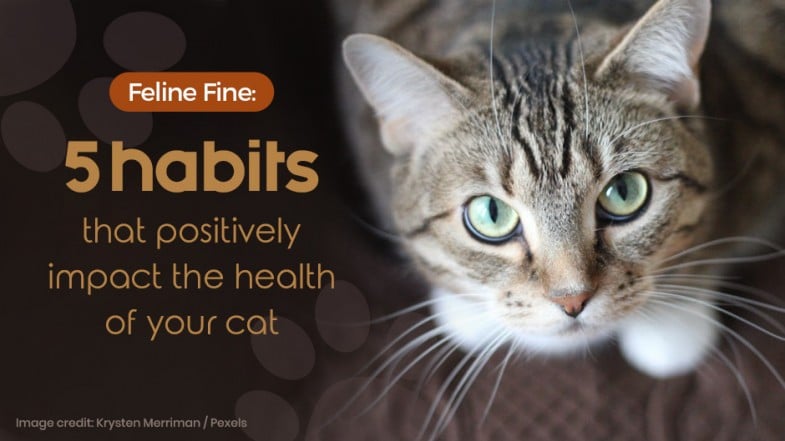
Feline Fine – 5 habits that positively impact the health of your cat
Cats are wonderful pets; in fact, over 25% of US households share their home with a feline companion, according to the AVMA (American Veterinary Medical Association). They’re cute, cuddly, comical, and provide delightful companionship! But there are some things you...

Often Overlooked Summer Safety Hazards
Pull out the sunglasses, ball caps, and flip-flops! Summer is in full swing. For pet owners, summer offers some of the most exciting activities to keep pets active and elated. Unfortunately, this lovely season also comes along with some less-than-fun...

5 Tips to Help Your Pet Adjust to Your Back to Work Schedule
It’s back to work for many of us that were working from home. But what does it mean for our pets? Amidst the pandemic, our pets became accustomed to us being home for them nearly 24/7. This can make for...

Booms, Zooms, and Commotion-Free Rooms
As summer approaches, so do the booms, blasts, and excitement that come along with this commotion-filled season. From thunderstorms to the Fourth of July, pets experience an array of experiences that can bring out their anxiety. Preparing for the noise,...
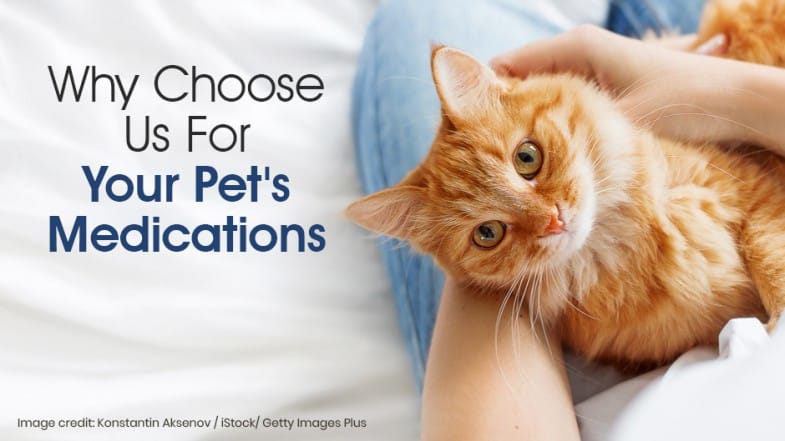
Why Choose Us For Your Pets Medications
You would never take risks when it comes to your pet’s safety, health, and wellbeing. Would you? Well, with the rise of counterfeit prescription drugs and rogue online pharmacies, you may inadvertently be putting your pet at risk

Demystifying Your Horse’s Dewormers
Spring is here, and your horse is likely coming due for their seasonal dewormers. But if you’re like other equine owners, you may be wondering what dewormers your horse needs and what exactly they do. Don’t worry. We’ve got you...

Household Pet Poisons Most People Don’t Know About
Did you know that March is Pet Poison Prevention Month? This month is dedicated to keeping pets safe from accidental poisonings and educating pet owners on how to do just that. Some curious pets cannot help but get into trouble...

12 Tips to Celebrate Pet Dental Health All Year Long!
Here is a fact we hope you’ll sink your teeth into: preventing periodontal disease (also known as gum disease). By protecting your pet’s dental health, you can extend their life by three years! Along with obesity, dental disease is a...

Planning Your Pet’s Health This Year: A Month-by-Month Guide for Pet Parents
Here’s a tail-wagger for you: 2021 is finally here. We are happy to welcome the new year with smiles and a rejuvenated sense of optimism. As a team, we remain committed to providing pets with the best lives they can...

The Gift of Health for Your Pet
As you’re shopping for the holiday season, you may ask yourself, “What’s the best gift I can give my pet?” While pet sweaters are cute and can make for adorable holiday cards, we believe the best present a pet parent...

Celebrate Thanksgiving with an Attitude of Gratitude
Despite all that has happened in 2020, this year has its hidden gems. From having more time to snuggle with the cat to greeting neighbors working from home on walks with the dog, there is still so much to be...

Have a Not-So-Scary October
2020 has been scary enough, so there’s no need for any extra worries this year. To help keep your pets safe this October, we’re offering you our top tricks to keeping the treat in this sweet month.
1. Chocolate,...

3 Hidden Signs of Pet Pain – Is Your Pet Trying to Tell You Something?
Pain and your pet: two things you never want to think about together. When our pets hurt, our hearts break. We do everything we can to help our beloved companions avoid the irritation and anguish of physical discomfort. Yet it...

Caring for Your Pet Locally is Caring for Your Community
We’re proud to be part of this diverse and caring community. We are equally honored to be a local business that makes an impact on the happiness and health of your furry family members.
During these trying times, we have...

3 Hidden Summer Hazards That Can Be Fatal for Pets
The dog days of summer are here. For many, this season comes with endless possibilities for having fun with your pets, like picnics, nature walks, and swimming pools. After being stuck at home for so long due to COVID-19, we...

5 Ways to Prevent Doom & Gloom from Summer Booms
Does your dog or cat run and hide when there’s a thunderstorm? What about the Fourth of July? Between unpredictable weather and fireworks, your pet may be dreading summer.
While your pet hides, shakes, and drools, there’s a good chance...

Making the Most of Quarantine with Your Pets
While COVID-19 quarantines continue across the country, you may be spinning your wheels to stay busy, productive, and positive. Luckily, our pets provide a great deal of comfort and companionship despite the isolation and stress caused by the Novel Coronavirus....

Spring into Spring with These 3 Pet Safety Tips
Are you ready to hop into spring? We sure are. In spite of the uncertainties of this unprecedented time, we are happy to see so many people (distantly) uniting and finding creative ways to be the community we’re proud to...
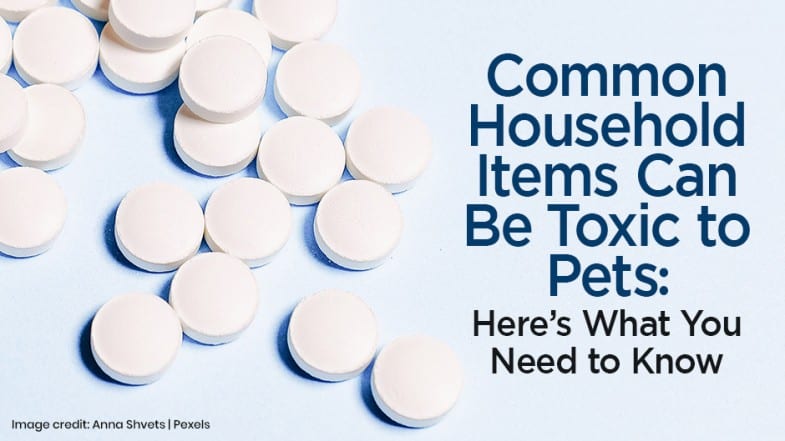
Common Household Items Can Be Toxic to Pets: Here’s What You Need to Know
March is Pet Poison Prevention Month. Many pet parents are surprised by the number of seemingly harmless items around the house that can cause serious injury or death for cats and dogs. To help you march through this spring and...

Make Your Pet’s Dental Health a Reason to Smile
Did you know that February is National Pet Dental Health Month? We love that this month is devoted to your canine’s canines, your kitty’s chompers, and your pet’s pearly whites. While your companion’s mouth may be a source of kisses...

Sit, Stay, Read On for Tips and Tricks to Teach Your Pet
Are you ready to ring in the New Year with some new tricks to teach your dog or cat? Yes–cats can learn tricks, and they’re rather good at it! January is “Train Your Pet Month”. You can celebrate with your...

5 Unbeatable Gifts to Give Your Pet This Year
As the holidays approach, you’ve probably switched into Santa-mode and started making a gift list and checking it twice. And like most pet parents, you probably buy your pets something extra special to thank your best friends for being oh-so-amazing!...

Holiday Considerations for Your Pet: Seeing The Holiday Through Your Pet’s Eyes
When you see the holiday through your pet’s eyes, the big guy in the red suit may seem kind of frightening. And that’s not all – the home filled with scents of tasty but possibly unhealthy and dangerous foods, the...

Fall Pet Safety Prevention that Deserves Your Attention
Don’t let your pet “fall” into some of the most common safety hazards we see this time of year. Fall may be the most beautiful season to some, but there are unique risk factors you can prepare for. If you’re...

September is Animal Pain Awareness Month
Nothing hurts pet parents more than believing their pet is in pain. And we can’t blame them. It’s hard to know exactly how much pain or discomfort our lovable pets may be in since they can’t ask for aspirin or...

Keep Your Pet Cool and Safe This Summer
Summer is here! Whether you have a hairless Sphynx or a hairy Husky, the heat this time of year can be dangerous for pets. Whatever the breed or size of your kitty or canine, there are a few things to...

Pet Safety for this Fourth of July
You have probably heard of the town in Italy that switched to silent firework shows to help the town’s pets better cope with the booms and blast of traditional fireworks. But did you know there aren’t really “silent fireworks?” Until...

Make the Most of this Summer with Our Summer Safety Tips
Summer is the best season to be a dog! The sunshine and great weather lead to endless possibilities of fun outdoor activities. From doggie paddling on a beach summer vacation to leaping through the woods, summer is dog-gone fun!
As...

Pet Poison Prevention: Are You Ready for Spring?
It can be scary when your pet has ingested a potentially toxic substance, especially when you didn’t see what he licked or swallowed. To help raise awareness of the issue and prevent illness or fatality in pets, the American Veterinary...

A New Year Equals New Opportunities to Be a Great Pet Owner!
Now that the calendar has officially flipped over to 2019, you may be focusing on meeting some new resolutions for the upcoming year. Perhaps one of those is to be an even greater pet owner than you already are. This...

Rethinking Pets for Presents
The thought of a cuddly puppy or kitten under the Christmas tree may be tempting, but think twice before giving a pet as a present. The months following the holidays are often the busiest time for shelters as new pet...

Safe and Thankful
The hustle and bustle of Thanksgiving is a part of the tradition for many families. But in the commotion, it’s important to keep safety in mind for our four-legged family members. Our Magnolia Springs Veterinary Center veterinary staff offers...

Safe Spooking
Do you have plans for trick-or-treating this month? Parties? Visiting kiddos in creative costumes? As Halloween activities can often stretch through much of October, our Magnolia Springs Veterinary Center veterinary staff provides these tips to help keep this fun and...

Only the Lonely
Does your dog chew, scratch, whine or bark when left alone? Or does your cat urinate in your bed or meow loudly? While more common in dogs than cats, you may be tempted to conclude your pet has separation anxiety....

The Top Summer Safety Issues for Dogs and Cats
Now that summer is finally here, you and your pet can spend more time outdoors enjoying all that the season has to offer. Like the other three seasons, summer presents unique safety challenges for our companion animals. The good news...

Guard Your Pet’s Heart: Why Prevention Just Makes Sense
The heartworm parasite presents a serious and sometimes fatal threat to companion animals. Unfortunately, it is easy for your pet to pick up and difficult to treat in dogs. There is no heartworm treatment for cats.
The main route...
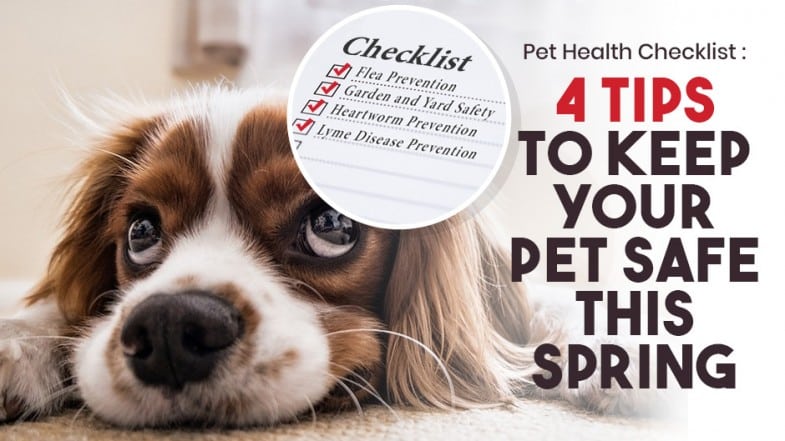
Pet Health Checklist: 4 Tips to Keep Your Pet Safe This Spring
Our recent winter is one we’re looking forward to leaving behind, and it officially ends this month. As you look forward to spring, the Adair County Veterinary Clinic veterinary team encourages you to take a few minutes to consider seasonal...

Preserving the Pearly Whites
Did you know that it’s National Pet Dental Health Month? The American Veterinary Medical Association (AVMA) started this awareness campaign several years ago to alert people about the importance of caring for their pet’s oral health. Although most pet owners...
